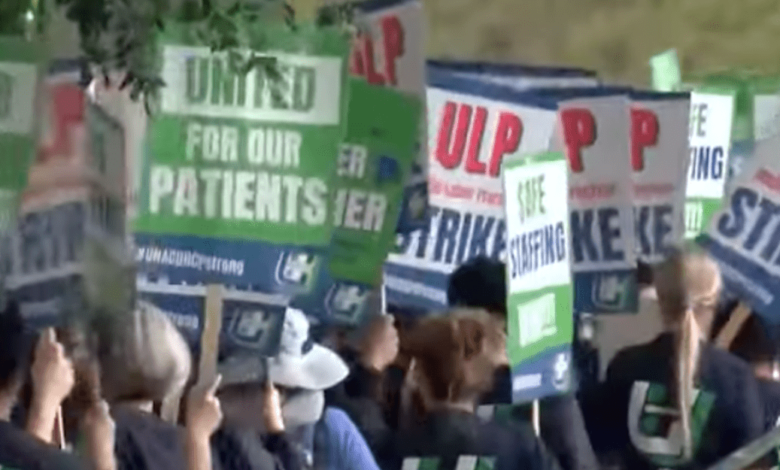900 Maui Health Kaiser Nurses and HCP Strike Over Unsafe Staffing Ratios

Negotiations between UNHCEH, representing over 900 healthcare workers, and Maui Health began in July. Despite months of discussions, the two parties were unable to reach a mutually satisfactory agreement, particularly on the crucial issue of staffing ratios. This deadlock ultimately resulted in the union’s decision to initiate a three-day strike starting Monday morning, affecting the following hospitals,
- Maui Memorial Medical Center
- Kula Hospital
- Lanai Community Hospital
The core of the dispute lies in the union’s proposal for staffing ratios similar to those agreed upon by Kaiser Permanente with its registered nurses in California. However, Maui Health’s management rejected these proposals, leading to an impasse that the union felt could only be addressed through strike action.
Strike Action and Its Implications
The decision to strike was not taken lightly by the UNHCEH members.
@unacuhcp Maui UNAC/UHCP is ready! 3-day ULP strike starting November 4, 0700 to at November 7, 0700 at Maui Health/Kaiser. We’re standing up for our patients and our profession!#nurse ♬ original sound – United Nurses & HC Pros
This labor action underscores the severity of the disagreement between the union and management. By taking this step, the union aims to emphasize the critical importance of safe staffing for both patients and staff, hoping to bring management back to the negotiating table with a renewed focus on this issue.
The strike also highlights the broader challenges facing the healthcare system in Hawaii and across the United States. As healthcare facilities grapple with staffing shortages and increasing patient loads, the debate over appropriate staffing levels has become increasingly urgent.
As the strike unfolds, both parties face pressure to return to negotiations and find a resolution. The union has made it clear that a new contract will not be possible without guaranteed staffing ratios, setting a firm stance on this issue.
As the strike continues, all eyes will be on Maui, watching to see how this dispute is resolved and what it might mean for the future of healthcare staffing and patient care standards.







